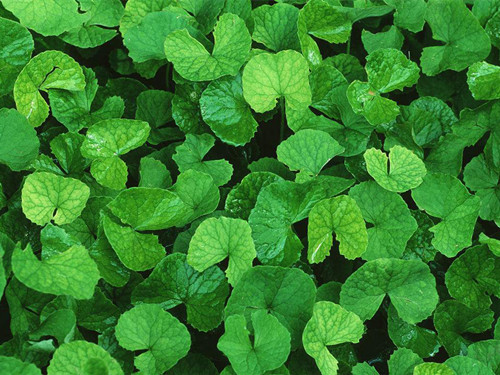If you experience frequent breakouts due to new face creams, face wash, or cleansing cream, you may have sensitive skin. Sensitive skin tends to react easily to different substances, causing a rash or mild tingling sensation. This is a normal reaction from the immune system, which engages in the removal of a foreign object. However, in some cases, a reaction can be severe and result in a rash. Herbs for sensitive skin have several benefits and can be used on a daily basis. They can help reduce redness, relieve itching, and provide a cooling sensation to the skin.
Chamomile

Chamomile
Chamomile has a pleasant floral and earthy aroma, making it perfect for sensitive skin. They are known for their healing properties and can be used as a toner. The antiallergic components in chamomile extract are mainly Azulene. Azulene powder has a very good anti-allergy effect, can effectively repair blood vessels and enhance vascular elasticity, improve skin sensitivity to cold and hot stimulation and effectively help the growth of cuticle. You can add the whole dried flowers to your bath or skincare products.
Lavender
Another herb for sensitive skin is lavender. Lavender essential oil promotes cell regeneration, inhibits bacteria and reduces scarring, suitable for all skin types. Moreover, lavender extract can effectively remove hydroxyl free radicals generated at the start of chain reaction and extended free radicals generated after chain reaction, and reduce and delay DNA oxidative damage. This herb balances oil production and contains antioxidants that fight signs of aging. It works well on sensitive skin, and you can use it as a facial toner, hair rinse, and cream. Many natural skin care products contain lavender. It is also beneficial for reducing stress and tension.
Aloe Vera

Aloe Vera
Aloe is rich in vitamins A, B, C, E, potassium, zinc, selenium and other trace elements and amino acids. Aloe vera extract has long been used to add to skincare products and is thought to help with sunburn and sensitive skin repair. Aloe vera extract is often added to commercial products for dry skin. Its polysaccharide content helps retain moisture on the skin and helps increase collagen production. Aloe also helps reduce the appearance of stretch marks and is an excellent herbal remedy for sensitive skin. However, many other benefits depend on the individual.
Comfrey
Comfrey extract is a powerful antioxidant and has anti-inflammatory properties. The root of comfrey is rich in Allantoin, which helps skin cells regenerate. Comfrey also contains mucilage, which acts as an emollient. This means your skin will retain more moisture and look younger for longer. If you’re prone to skin rashes, comfrey extract can revive your skin.
Centella Asiatica

Centella Asiatica
Centella asiatica, a natural ingredient in traditional Chinese medicine, has long been known to have anti-inflammatory and detoxifying properties and has been used in skincare in recent years. The Centella asiatica extract has a variety of active components, including Asiaticoside, Asiatic acid, Madecassic acid, mainly saponins and saponidins. It was found that hydroxyl asiaticoside could inhibit the pain sensitization induced by polysaccharides and reduce the sensitivity of mice to pain stimulation, which was used as an additive in soothing cosmetics.
Portulaca Oleracea
Portulaca oleracea, also known as little hogweed, or pursley. Purslane is rich in L-norepinephrine, dopamine, vitamins, polysaccharides and amino acids. Experiments have proved that purslane extract has a good anti-allergy effect and the inhibition of dysentery bacillus, Escherichia coli, staphylococcus aureus and other natural antibiotics. Purslane extract is used to help the vascular smooth muscle contract and has both central and terminal properties. It can soothe the skin and prevent itching caused by dryness, as well as prevent dryness and aging.
Oat Kernel
Oat kernel extract, also known as Avena sativa, is an emollient found in a wide range of skincare products. It is also effective for treating minor skin irritations and inflammation. Several studies have shown that aloe vera is an effective herb for sensitive skin. It has a number of beneficial properties, including skin-soothing and antioxidant properties. It is also a good source of phenolic antioxidants. Depending on the source, it can be found in colloidal or granular form.
Herbal therapies for sensitive skin are commonly used and have a wide range of safety classes. Some are highly biologically active, while others can be toxic. In the case of herbal preparations, there have been many adverse events related to cutaneous contact,allergic contact dermatitis is the most common adverse reaction, but serious reactions have also been reported. To help soothe the redness, try applying an herb or using a topical ointment that contains natural ingridients can help prevent infection and reduce skin irritation, or consult your Ayurvedic doctor to diagnose your skin type and what triggers the breakouts.


